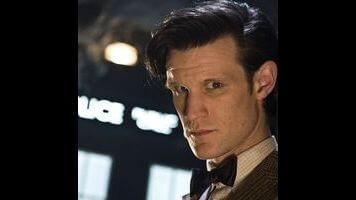Doctor Who: "Amy's Choice"

UPDATED with a correction regarding writing credits.
Watching “Amy’s Choice” I thought it was a solid, if only solid, entry in what’s been a generally terrific season of Doctor Who. When I got to the twist at the end—a twist that, call me stupid, I honestly didn’t see coming until just before the Doctor spelled it out—I thought maybe I’d been underrating it the whole time, and that it might improve on a second viewing. It’s rare, after all, we get a chance to peek at the Doctor’s psyche or anything behind the gregarious man of action persona he presents to the universe. Here we get—spoilers, of course—an hour with the Doctor’s self-lacerating dark side, a mean little sprite of a man who prods him for his “tawdry quirks” and habit of taking on and discarding young companions with little regard for their long-term well-being. (And that doesn’t even factor in robotic canine companions.) Who knew that someone who carried himself with such obvious self-regard had so much insecurity inside him?
Actually, maybe that was pretty obvious all along. But it was still compelling to see all that psychodrama brought to the surface with the aid of a puckishly demonic Toby Jones. Jones’ characterization of the Dream Lord makes perfect sense as the Doctor’s reflection. He’s got the same disarming wit and gift for insight (and, in some scenes at least taste for bow ties), but instead of an ability to put others at ease—one of the Doctor’s most distinctive traits—he’s instantly unsettling. From intense expression to his casually cutting remarks, he’s a troubling person with whom to share space. In lesser hands, he might have come off as a copycat version of Star Trek’s Q, but Jones makes the part his own.
He’s not alone in delivering a notable performance, either. Though the story sags in the middle quite a bit—this was certainly not one of those breakneck, never-catch-your-breath episodes of Doctor Who—both Karen Gillan and Arthur Darvill had many fine moments. Despite Rory’s prominent role in “Vampires In Venice,” this was the first time Darvill got a chance to turn him into a three-dimensional character, and someone who might have as a strong of a hold on Amy’s affections as the Doctor. Sure, he’s not a dashing intergalactic Time Lord, but he’s a good guy who loves her. And it’s clear by episode’s end that she loves him back, however appealing the Doctor might seem (or whatever he might feel, what with his weakness for redheads dating back at least to the Elizabethan era.)








































